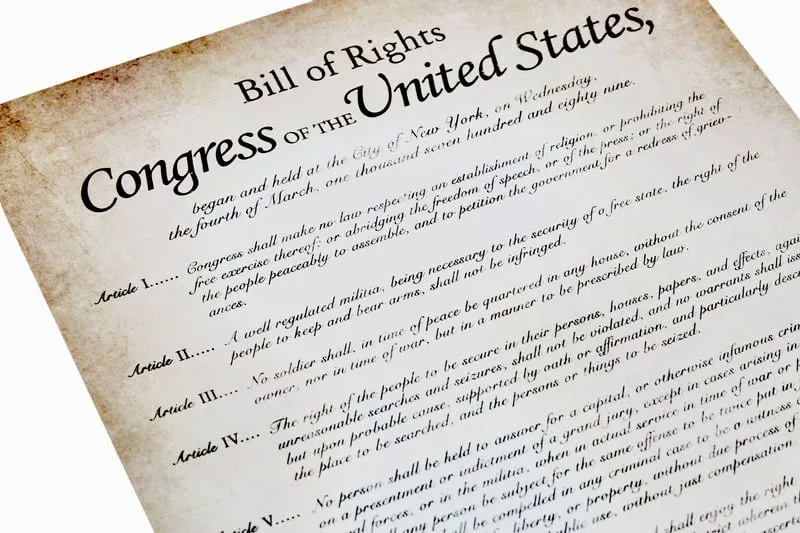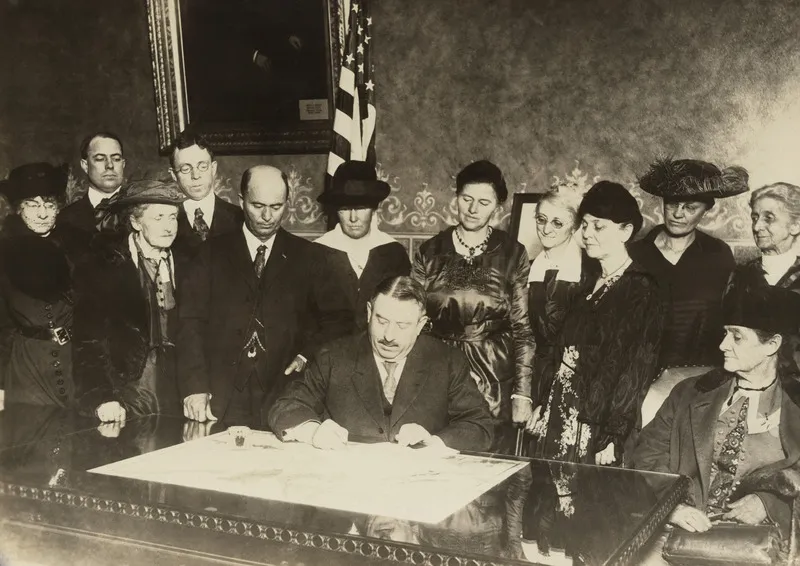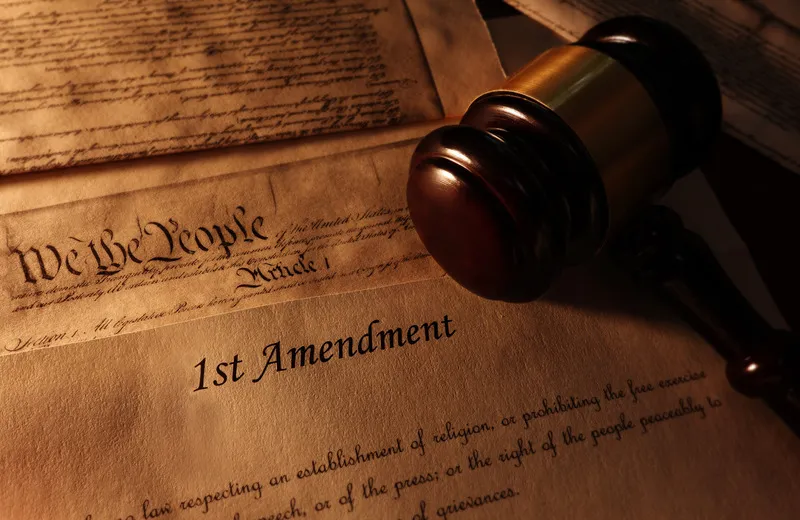Table of Contents
One of the most important amendments to the US Constitution was the 14th Amendment, which was ratified in 1868. It changed the course of American history by defining citizenship, ensuring equal protection of the laws, and strengthening civil rights for all citizens.
The Amendment emerged from the tumultuous period following the Civil War and the abolition of slavery, specifically designed to provide formerly enslaved people with rights and protections under the law. In this article, we will explore how the 14th Amendment shaped citizenship in America, its key provisions, and its lasting impact on the nation’s legal framework.
The 14th Amendment and Its Importance
The 14th Amendment is essential to the U.S. Constitution, addressing critical issues of citizenship, equal protection, and civil rights. It was introduced to ensure that all people, especially those born or naturalized in the United States, were granted full citizenship rights, regardless of race or former status as enslaved people. The Amendment was presented after the Civil War and the 13th Amendment’s passage, which made slavery illegal.
Section 1 of the 14th Amendment guarantees that all persons born or naturalized in the United States are citizens of the United States and the state in which they reside. It also provides:
- Equal protection of the laws.
- Ensuring that no person is denied their fundamental rights, including the right to vote.
- Due process.
- The ability to hold public office.
This was an essential change in U.S. legislation, particularly for African Americans, who had previously been denied citizenship.
A Watershed in American History: The Fourteenth Amendment

The passage of the 14th Amendment was a monumental event in American history, marking a decisive shift in the nation’s commitment to civil rights. Following the Civil War, it was one of the Reconstruction amendments and addressed the need for federal protections for African Americans and other marginalized groups. The 14th Amendment was not just about granting citizenship to those born in the U.S. but also about ensuring that no state could strip citizens of their fundamental rights without due process.
Before the 14th Amendment, many states passed discriminatory laws that restricted the rights of Black people, such as the Black Codes. These laws effectively limited their ability to own property, seek employment, or access public services. By mandating that no state deny anybody their life, liberty, or property without following the required legal procedures, the 14th Amendment aimed to buck this trend.
The Citizenship Clause: Defining National Identity
The Citizenship Clause, one of the most important parts of the 14th Amendment, declares that anybody born or naturalized in the United States is a citizen of the. This clause ensured that newly freed slaves and their descendants would be granted full citizenship rights.
Before the passage of the 14th Amendment, there were legal debates over who could be considered a citizen, especially about people of African descent. According to the Citizenship Clause, anybody born in the United States. became a citizen by default, irrespective of country background or color. Additionally, it strengthened the notion of a single national identity by granting citizenship to those born in U.S. territory.
The Role of the 14th Amendment in Citizenship Rights
The 14th Amendment played a key role in expanding citizenship rights in America. In addition to granting citizenship to formerly enslaved people, it laid the foundation for future civil rights protections, such as those found in the Civil Rights Act of 1964 and the Voting Rights Act of 1965. By ensuring that all citizens were entitled to equal protection under the law, the Amendment made it more difficult for states to enact discriminatory practices.
The Amendment also addressed issues related to “due process of law,” which prevents the government from depriving citizens of their rights unfairly. This provision has been used in numerous landmark Supreme Court cases, including Brown. Obergefell v. Public school desegregation was a result of the Board of Education.
Examining Section 1 of the Fourteenth Amendment in More Detail
Section 1 of the 14th Amendment is perhaps essential, as it Amendmentes the groundwork for citizenship and equal legal protection. This section outlines the basic principles that would become central to future legal battles concerning civil rights, including the right to due process and equal protection of the laws.
It was Section 1 that ensured that no state could discriminate against citizens based on race, ethnicity, or other factors. The equal protection clause of Section 1 would later be cited in a variety of landmark cases, such as Loving v. Obergefell.
Exploring Section 3: Disqualification from Public Office

Section 3 of the 14th Amendment was designed to prevent former Confederate officials from holding public office after the Civil War. It disqualified individuals who had engaged in insurrection or rebellion against the U.S. prohibited from serving in any public capacity by the government, including former Confederate officials. This provision aimed to ensure that those who fought to preserve slavery could not return to power in post-war America.
Although this provision was used sparingly, it significantly shaped the political landscape during the Reconstruction era. In modern times, Section 3 has been revisited to examine political figures who engage in insurrection or rebellion, ensuring that such individuals cannot hold public office.
The Significance of Section 5 in Constitutional Legislation
The 14th Amendment’s Section 5 gives Congress the authority to enact amendment legislation to carry out the Amendment’s provisions. This clause allowed the federal government to pass laws to protect citizens’ rights and ensure that states complied with the Amendment’s requirements. Over time, the CongrAmendmentassed various laws to enforce civil rights protections, such as the Civil Rights Act of 1964 and the Voting Rights Act of 1965.
How the 14th Amendment Evolved Over Time
Although the 14th Amendment was ratified in 1Amendmentfull, the impact did not unfold immediately. Over time, the courts amended and expanded the Amendment’s provisions. In the early 20th century, the U.S. Supreme Court began applying equal protection and due process clauses to various forms of discrimination, including racial segregation and gender inequality.
Also Read: Data Science in Fintech: A Dynamic Duo Transforming the Industry
The Amendment has also played an amendment role in voting rights, reproductive rights, and marriage equality cases. Its broad language and application to all citizens have made it one of American history’s most enduring and influential amendments.
The Impact of the 14th Amendment on U.S. Legislation
The 14th Amendment has profound amendments. Legislation and the legal system. By providing a constitutional basis for equal protection under the law, it has been used to challenge discriminatory laws and practices at both the state and federal levels. From desegregation to marriage equality, the 14th Amendment has shaped the laAmendmentovern American society, ensuring that all citizens are treated equally, regardless of race, religion, gender, or other factors.
The Citizenship Rights Protected by the 14th Amendment

One of the most lasting contributions of the 14th Amendment is its role in the Amendment of citizenship rights. The Amendment guaranteed that those born or naturalized in the United States would be treated equally and afforded the same rights. This principle has been upheld in numerous Supreme Court cases, making the 14th Amendment a cornerstone of Amendment civil rights law.
The Disqualification Clause and Public Office Eligibility
The Disqualification Clause of the 14th Amendment prevents individuals who have engaged in insurrection or rebellion against the U.S. government from holding public office. This clause remains essential today in ensuring that individuals who have engaged in actions against the government are held accountable and prevented from taking office.
Challenges and Controversies Surrounding the 14th Amendment
The 14th Amendment has played a crucial role in shaping American citizenship and ensuring all citizens are entitled to equal protection under the law. Through its provisions on citizenship, due process, and equal protection, the Amendment has helped to create an inclusive and fair society. It remains one of the most significant amendments to the U.S. Constitution, shaping civil rights and guiding the nation’s legal framework for generations.




